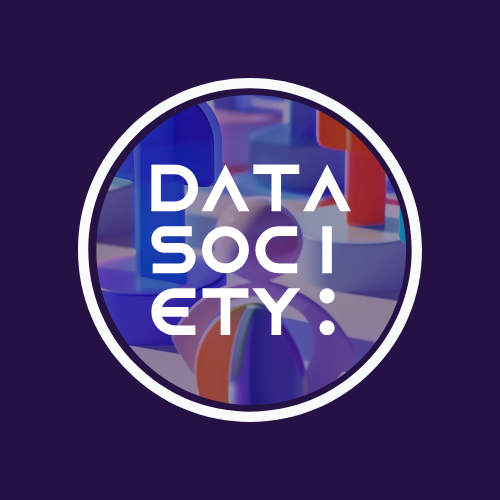Most leaders are coming to a consensus: in today’s world, data is crucial for better decision-making. However, despite widespread investment in tools and infrastructure, few organizations would claim that they’re truly part of a data driven culture.
Why? Because the biggest barriers have little to do with technology and everything to do with behavior. This gap between aspiration and execution is at the heart of understanding data driven decision making meaning.
“Just because you start to collect data doesn’t mean you will continue,” says Dmitri Adler, Co-Founder of Data Society. “It’s also very difficult to not make decisions with your gut.”
Adler is pointing to a common challenge. Successful leaders often rely on intuition because it’s what they are used to. Overriding that instinct with empirical analysis can feel uncomfortable, even risky. But embracing a data driven decision making process is a necessary shift for organizations seeking to stay competitive.
“You have to break the mental barrier of ‘my instincts are correct’ and know that sometimes you just have to close your eyes and go with the data,” Adler says.
LEARN MORE: What It Really Means to Be Data-Driven
When Instincts Outweigh Insights
Gut-based decisions may feel safer in the moment, especially in high-stakes environments. But relying solely on instinct is one reason startups and challengers often outpace more established organizations.
“That’s how we have up-and-comers come out of nowhere and dominate industries that were seemingly well-established,” Adler notes.
This highlights a core principle of data driven decision making. While intuition has a place, lasting success depends on trusting the data, even when it feels counterintuitive. Understanding the data driven decision making meaning is about recognizing that evidence-based choices often lead to stronger long-term outcomes, even if they challenge conventional wisdom.
Leaders who commit to the data driven decision making process position their teams to adapt, outperform, and contribute to a stronger data driven culture over time.
Culture Eats Data Strategy for Breakfast

Many companies approach data transformation by onboarding new tools and hiring analysts, assuming that culture will follow. But that’s a common misstep.
As Adler puts it, “Being data-driven doesn’t just mean that you hire a consulting firm. It means you are thoughtful about your communication strategy and build it into your deployment. It’s continuous.”
In reality, building a data driven culture requires more than technical upgrades. It requires a deliberate, ongoing commitment to shaping how people think, communicate, and make choices. For the data driven decision making process to take root, communication must be:
Consistent. Regular messaging from leaders about how data supports the mission and shapes decisions.
Integrated. Tied to performance management, promotions, and professional development.
Mission-driven. Connected to goals that employees care about on a personal and team level.
This is where the data driven decision making meaning comes to life, not just in strategy decks, but in the day-to-day reality of the people doing the work.
MUST READ: Data Literacy vs. Data Fluency: Understanding the Key Differences
Everyone Thinks They’re Behind
According to Adler, almost every client he speaks to believes they’re behind. “Everyone says the same thing: ‘We’re so far behind.’” But in reality, most organizations are in the same boat, working through the same challenges at different speeds.
This is a key insight into data driven decision making. True innovation doesn’t require perfection. It requires progress—often driven by individuals who champion the shift toward a data driven culture.
That progress is usually fueled by internal champions: people who model data-informed behavior, advocate for tools and training, and help bridge gaps between teams. These champions bring the data driven decision making process to life, making it actionable and relevant in daily work.
“Point solutions are ultimately easy to acquire,” Adler explains. “But making that system work together and having the internal championship to sustain it is the hard part.”
Understanding the real data driven decision making meaning starts with recognizing that transformation is rarely linear. It’s driven by consistent action, shared ownership, and a culture that values learning over perfection.
Make Data Personal
Perhaps most importantly, Adler reminds us that transformation only works when it benefits the people involved. That means tying data not only to the organizational mission, but also to individual growth and opportunity.
“You need to explain what being data-driven means to your organization, how it affects performance, and how it fits into people’s career trajectories,” he says. “If you do that well, people will want to stay. They’ll want to contribute.”
Helping employees connect data skills to their personal and professional goals is a crucial part of the data driven decision making process. When people understand how data literacy can accelerate their careers or help them serve their communities more effectively, they begin to internalize the value. That’s when real transformation takes hold.
This is the heart of a strong data driven culture, one where people at every level understand the data driven decision making meaning, see its relevance, and use it to guide their everyday choices.
Is your team ready to break through the culture barriers and fully embrace data driven decision making?
Data Society helps organizations create a culture of data literacy and true data-driven decision making that drives transformation. Contact us to learn more.
Q&A: Why Becoming Data-Driven Is Harder Than It Looks — And What to Do About It
Being data-driven means making decisions based on empirical evidence rather than instinct or tradition. It’s about using data to guide strategies, measure performance, and consistently and intentionally support organizational goals.

